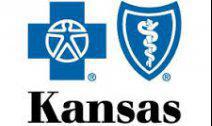Sleep Apnea Q & A
Having sleep apnea can dramatically affect the quality of your sleep and put you at risk for serious health complications. The team at Annandale Primary Care in Annandale, Virginia, can help you to determine the causes for your sleep apnea and help you get a good night’s rest, leading to a healthier body. For an expert consultation, and to improve your sleep, call the office or book an appointment online today.
What is sleep apnea?
Sleep apnea is a disorder characterized by having periods of no breathing (apnea) while sleeping. This is a serious condition that can have significant complications if left untreated.
There are two main types of sleep apnea:
Obstructive sleep apnea
Periods of apnea are caused by an obstruction of airflow created by the tissues and structures of the mouth and throat blocking the airway.
Central sleep apnea
Periods of apnea are caused by a failure of the central nervous system to trigger breaths for short periods of time.
Men suffer from sleep apnea more often than women. Obesity, advanced age, and smoking can increase your risk for sleep apnea.
What are the symptoms of sleep apnea?
The frequency of your physical exams depends on your age, gender, and lifestyle. However, some periods or life events necessitate a physical exam, such as the following:
- Notable periods of no breathing while sleeping
- Snoring
- Gasping for air while sleeping
- Waking up with dry mouth
- Feeling tired, even after sleep
- Waking with a headache
- Difficulty paying attention or concentrating
- Irritability
- Restlessness while sleeping
Having pauses in breathing can cause a decrease in your oxygen level in the blood. This can cause dangerous long-term complications.
What are some possible complications of sleep apnea?
Having untreated sleep apnea can cause a wide range of health problems, including:
- Heart rhythm problems
- Metabolic problems
- High blood pressure
- Mood disorders
- Complications during surgery
- Depressed immune system
Lack of quality sleep can significantly increase your risk for diabetes, traumatic accidents, depression, and stroke.
What are possible treatments for sleep apnea?
The team at Annandale Primary Care works closely with you to determine the underlying cause for your sleep apnea and develops a personalized plan of care.
Possible treatments may include:
- Weight loss counseling
- Smoking cessation counseling
- Continuous positive airway pressure (CPAP)
- Nighttime oral appliance
- Changes in sleeping positions
Your sleep apnea can be diagnosed by taking part in a sleep study, which confirms your symptoms and can help identify the underlying cause for your sleep disturbance.
If you think you may have sleep apnea, call the office or book an appointment with Annandale Primary Care today.

With access to
24 Hour
Emergency
Assistance
Undiagnosed patients can unknowingly transmit the disease to others. Early diagnosis can help to prevent or stop an outbreak.


















